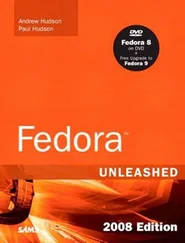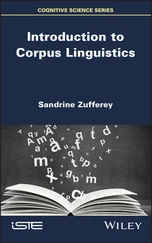example, of language purists in France who strive to find native French words to replace le parking, le hamburger and le walkman.
224
Lexical variation and change
225
Why do speakers borrow words from other languages? Perhaps the most
obvious reason is sheer necessity. People need to develop words for new and
unfamiliar concepts – new technology, new plants and animals, and in the examples above, new and unfamiliar foods. Note that the model of lexical representations discussed in section 14 supposes that there is a distinction between concepts and lexical entries, and from this perspective, there is nothing odd about the suggestion that we have concepts for which we lack words. Another reason is prestige.
If certain cultures are associated with particular prestigious activities, it is common for the words associated with that activity to come from the language of that culture. Continuing with the food theme, France was at one time considered the centre of world gastronomy, and hence English has words like cordon bleu, gourmet, cuisine, restaurant, menu, mousse and soup that it has borrowed from French.
When a word is borrowed, it is often gradually changed so that it fits the
phonological and morphological structure of the borrowing language or dialect.
So whilst Françoise and Ricardo might go to a cafe [kafe] for a croissant [kʁwasɑ̃]
and a cappuccino [kaputtʃino], Mavis and Vic, in London, would go to the [kæf]
for a [kwasɒnʔ] and a [kapətʃɪinɐʊ]. Similarly, whereas the plural of pizza is pizze in Italian, English now applies its own plural morpheme to the borrowed word, hence pizzas.
Sometimes, when new concepts are introduced from other societies, the
speakers of a particular language may use their own native linguistic resources to coin a new word. These are known as calques. Let’s look at some examples
of this. Comanche, an American language of the southern United States, has
a word ʔohapltiʔa-taka-sikikamatl, which literally means ‘orange’s brother
tastes sour’. It is the word used for a lemon! In Irish Gaelic, the words sciath fearthanna translate as ‘rain shield’ and refer to an umbrella. In New Zealand, it is the job of the Maori Language Commission to create new words by using
words already in the language. As a consequence, we find examples such as
those in (211):
(211)
New word:
papa patopato
wai mangu
roro hiko
Literal meaning:
board knock
water black
brain electric
Idiomatic meaning:
keyboard
ink
computer
English tends to resort to Latin and Greek when new words are devised,
particularly for referring to new technology. Examples appear in (212): (212)
television: Greek tele (‘far’) + Latin visio (‘sight, thing seen’)
microscope: Greek mikros (‘small’) + Greek skopein (‘observe closely’)
photograph: Greek photo (‘light’) + Greek graphos (‘written’)
Borrowings, then, are words which originated in one language (or dialect), but which have come to be used in another, even by people who don’t speak the
‘lending’ language. These borrowings are very often assimilated to the phonological and morphological structure of the new host language (exercise 1).
226
words
Register: words for brain surgeons and soccer
players, hairdressers and lifesavers
A register is the specialised vocabulary common to a particular trade,
occupation, topic or activity. Hairdressers, soccer players, brain surgeons and undertakers all have specialised words or uses of words which refer to concepts particularly common or specific to their activity or profession. As a soccer player, you might nutmeg your opponent (kick the ball between their legs) or play a one-two; you might ask a hairdresser for a flat top or a bob, or need a surf lifesaver to rescue you from a rip (a dangerous backcurrent on a surf beach), but you are unlikely to ask a brain surgeon for a lobotomy. It is of some interest that occupations, interests, etc. can have some impact on the important idea of a basic level of categorisation introduced in section 13. Thus, whereas for many of us, dog corresponds to a basic-level category, for those of us preoccupied with dogs, the basic level shifts down to that of particular breeds. Similarly, while all of us are familiar with such words as beech, ash and elm, many of us are not in a position to distinguish these different types of tree. For those of us who are arboreally challenged in this way, it is plausible to suggest that tree appears at the basic level in our categorisation systems. However, this is not the case for botanists and tree surgeons. For them, the basic level of categorisation will be that of beech, ash and elm or, indeed, the more specific level of copper beech, mountain ash, etc.
Often, people consider that the registers of doctors and lawyers (and even
linguists) hinder communication and understanding. The term ‘jargon’ is sometimes used to refer to the confusing registers of particular occupations. In some senses, registers are ‘in-group’ varieties, which lead to accurate and speedy communication of information among those who know and use them but confuse those who don’t. It is obviously important that the doctor tells the nurse that you have had a coronary infarction or a stress fracture of your left tibia, but what you want to know is that you’ve had a heart attack or broken your left leg. In this medical example, the use of a special register is clearly a necessity – the leg, for example, has several major bones and it is vitally important for the nurse to know which one you’ve broken. Some registers, however, are deliberately confusing so as to hinder understanding by outsiders. This may be because the group speaking the particular register wants to maintain a sharply contrasting identity, or has something to hide.
Biscuit or cookie? Variation and change in word choice
Consider (213):
(213)
Concept
Word to refer to concept
Britain:
biscuit
USA:
cookie
Australia:
biscuit / cookie
The thin flat, often round, usually sweet, hard but crumbly thing we eat during our coffee break is called different things in different English-speaking areas.
Lexical variation and change
227
In Britain it is usually referred to as a biscuit and in the USA it is a cookie.
Australia is experiencing the very initial stages of language change with the word biscuit gradually losing out to the word cookie.
Such geographical differences in word choice are well known. Most people
are familiar with the US–UK contrasts between sidewalk and pavement, gas and petrol, pants and trousers, elevator and lift, vacation and holiday. Just as borrowing is frequent in situations of language contact, as we saw earlier, it is also very common when dialect contact arises. In the past century, within the English-speaking world, most interdialect borrowings have come from
American English, with the newly borrowed words pushing out, or beginning
to push out, older words, usually of British English origin. Thus, we find
examples such as those in (214), where in each case, the American English form is replacing, or has replaced, the British English equivalent:
(214)
British English
American English
housey
bingo
bakery
baker’s shop
minerals
soft drinks
pictures
movies
lorry
truck
chips
fries
crisps
(potato) chips
An interesting study of lexical shift from older ‘British’-type words to American borrowings has been conducted by Miriam Meyerhoff in New Zealand. As is
Читать дальше
![Andrew Radford Linguistics An Introduction [Second Edition] обложка книги](/books/397851/andrew-radford-linguistics-an-introduction-second-cover.webp)











